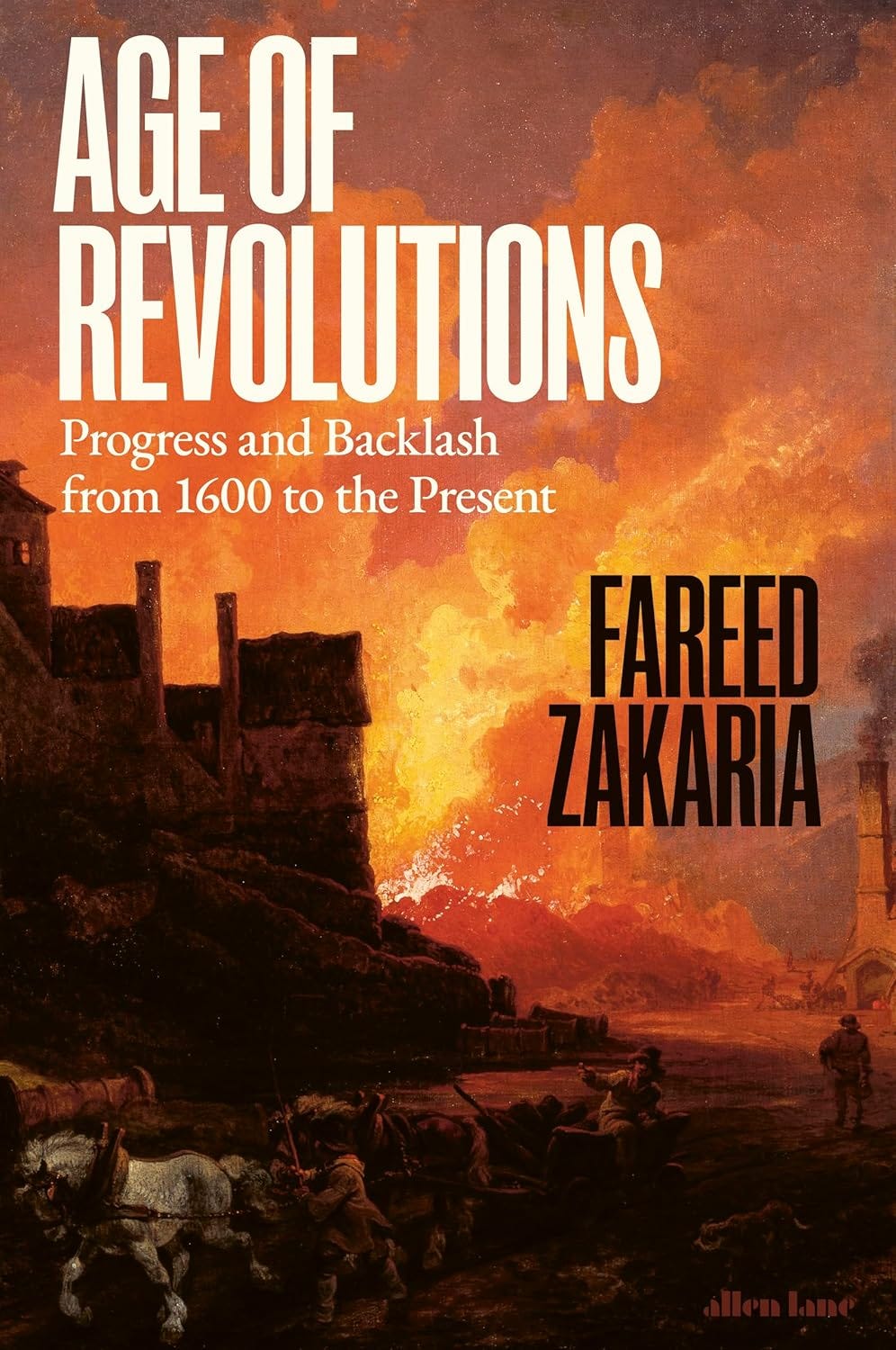Dear Reader
Come on, keep it together.
.
Keep It Together, Meaning Do Not Lose Your Nerve.
The Problem with Conquerors
This whole article is quotable - its by Richard Hanania in UnHerd - “How Elon Musk Lost the Plot: The tycoon is flailing in politics” - on why policy-making is a little more complicated than being good at business.
There is no indication in his prodigious tweeting that he relies on any newspapers, serious books, or credible sources of information. When a data scientist at X once told Musk that he had fallen for a conspiracy theory that would only appeal to a person at the tenth percentile of gullibility, Musk cursed at him. The man seems to have a deep lack of intellectual curiosity not only about the arguments of his political opponents, but even those of informed observers who would be inclined to support his project.
Again, having a kind of tunnel vision actually works well in business. An entrepreneur can afford to ignore the business press and what is happening in other industries and simply go about pursuing his vision of change. Yet a political actor can’t completely discount the views and opinions of those he disagrees with, because they are going to be part of the landscape going forward. And wise leadership requires a broad perspective on legal, economic and political affairs that raw genius can’t compensate for. Having a policy idea, for example, requires not only knowing whether it will work in the narrow sense, but also whether it can get through the courts and the legislative branch. This doesn’t mean that it would be a good use of his time for Musk to be reading case law, as no one can be an expert in everything, but it is necessary to have a grasp of reliable sources of information.
This leads to perhaps a more important difference between business and political success, which comes down to the ability to negotiate with and placate one’s enemies. An entrepreneur or CEO can act like a conqueror, provided his product is innovative enough or his market power overwhelming enough. If he builds a better, cheaper, faster product, society benefits, and he conquers his sector — or even creates an entirely new market. He never has to even be in contact with his competitors, who are free to do something else if they are less talented or lucky.
In contrast, the fundamental question of democratic politics is how to peacefully settle disputes between individuals and parties that disagree with one another.
.
The Last Word
A bit of Graydon Carter’s spite…
Mr. Carter has had a long and rocky relationship with Mr. Trump. His job helming Vanity Fair entailed meeting a lot of narcissists, but he calls Mr. Trump “a narcissist in a class of his own.”
“He was like an aluminum siding salesman, the fact that he would drop your name every third sentence. I didn’t dislike him, I’ll be honest. I’ve known him over the years, until he got elected. I don’t recognize this person.
“If it ever came out that he is a Manchurian Candidate, that this was a replacement, I wouldn’t be surprised.”
Reached for comment, Steven Cheung, the White House communications director, said in a statement: “President Trump is beloved by America and sits in the Oval Office every single day making the country better, while Graydon Carter is a washed-up has-been who can barely put a coherent thought together because he suffers from a debilitating case of Trump Derangement Syndrome that has rotted his tiny brain.”
Mr. Carter met Mr. Trump in 1984, when he spent three weeks in his company to profile him for GQ. This was the piece in which he noted for the first time that Mr. Trump’s hands seemed a bit small.
In a TV interview promoting the GQ piece, Mr. Carter predicted that Mr. Trump would either go all Howard Hughes, storing his urine in Mason jars, or go on to be the most powerful person in the world.
By the time Mr. Carter had become the editor of Vanity Fair, Mr. Trump had gotten over the hands thing and wooed him with Trump vodka and Trump ties “that were as stiff as a child’s toy sword,” as Mr. Carter put it. They had surf and turf at Mar-a-Lago.
In 1993, Mr. Trump invited Mr. Carter to his second wedding, to Marla Maples, at the Plaza Hotel. “He invited me to the one with Melania as well,” Mr. Carter said. “I wanted to go but I thought my friends would make fun of me if they saw my name in the paper as going, so I didn’t go.”
Mr. Carter assigned a story on Mr. Trump’s “comeback.” During the photo shoot, he writes, “the stylist decided that the Loro Piana cashmere sweater she had given Trump to wear wasn’t right. She asked him to remove it. Trump refused to pull it up over his head, not wanting to muss his elaborately assembled confection of hair.” In the end, they scissored the cashmere sweater off, he writes.
The truce didn’t last. Mr. Carter couldn’t resist ridiculing Mr. Trump, and Mr. Trump went back to calling him “Dummy Graydon.” “In the days before Twitter, he’d write me really angry letters,” Mr. Carter told me. “With Twitter, he wrote angry tweets about me. He called me sloppy, a loser. He said the magazine was failing, the restaurant was failing, the Oscar party was failing.” Mr. Carter printed the more than 40 tweets. “I had them framed,” he said. “They were on a wall outside my office.”
Mr. Trump also claimed that Mr. Carter’s wife had called him “a major loser.” Pausing for effect, Mr. Carter said, “She never used the word ‘major.’”
He heard about the Twitter rants from others. “I’ve never gone on Twitter or Instagram or Facebook,” he said. “I go on TikTok because of my daughter. I love TikTok.” If he made a video for the platform, he might do an ironing tutorial: “I can iron a shirt like a French laundry.”
Shortly before his presidential run in 2015, Mr. Trump sent Mr. Carter a tear sheet from an ad for a reprint of his book “The Art of the Deal,” with a picture of himself on the cover. In gold Sharpie, he had circled his hands and written, “See, not so short!”
“I wrote, ‘Actually, quite short’ on a card stapled it to the ad, and had it messengered back up to his office,” Mr. Carter said.
From Maureen Dowd’s profile on Graydon Carter in The New York Times.
.
We Cannot Be Made to Be Afraid
Excerpt of Tim Miller from The Bulwark Podcast.
.
Open and Closed
I am reading Fareed Zakaria’s The Age of Revolutions at the moment. It fills in some gaps I have about the declining usefulness of a left-wing and right-wing spectrum for understanding politics and social change. He makes the argument that an open or closed view of the world is more appropriate for these times. As in, open borders or closed borders. More about that in a future newsletter, but I am noting it here because it is relevant to any discussion defining community.
Here’s an interview by Mustafa Suleyman with Zakaria about his book.
.
When I Get Over This, I Will Have No Fear
I tried to play it with the straightest bat I could muster, but I was in shock. In media interviews they’d tear strips off me. Once I even cried on national radio—well, my voice trembled. I’d be sitting in a café and I’d look up and there’d be some young woman standing outside the window with her hands on her hips giving me a death stare through the glass. Booksellers told me about arguments that had taken place at the cash register in their shops, how people were almost coming to blows about the book. Now I think, How fantastic—and it was walking out of the shops. But back then, I was staggered by the onslaught. Being hated was painful, like being beaten up is painful. And yet, as it all started to die down, I began to think, When I get over this, I will have no fear. I did feel free after it was over. Free of the obligation to write as a feminist. I had experienced feminism as a straitjacket, to put it crudely, and I no longer wanted to speak as part of a group that would call me a heretic if I said what I really thought.
Helen Garner in The Paris Review being interviewed by Thessaly La Force.
.
Keep It Together, Meaning Stay Connected.
Definitions of Hanging Out I
I was wanting to read Sheila Liming’s book, Hanging Out: The Radical Power of Killing Time and then forgot about it until I came across her interview on the Ezra Klein podcast. (I really have to stop pointing so much to one podcast, but I am loving his recent content). Liming defines hanging out as “daring to do not much and daring to do it in the company of other people”1.
This is a wonderful discussion between Liming and Klein on a bunch of topics that I discuss regularly in my newsletters:
social media and social loneliness
how we structure our homes and our lives and whether that invites community
the importance of and loss of public space (which prevents hanging out)
formlessness in living (like the purposeless walk… the autonomy of time and anti-busyness)
village life/community-making/tolerance for ‘difficult’ people/talking to strangers
you need to practice tolerance for boredom and people offending you, so as to be able to keep the vital skills for ‘hanging out’
(and where does that leave the experience of family estrangement, which can be healing and important?)
the freedom of imperfection/fantasies of control (risk aversion and much of the world has undiagnosed anxiety)
exercising compassion (Susan Sontag says compassion is an unstable emotion and needs training to be kept alive)
anger versus contempt (ie. anger wants interaction and therefore can be mended; contempt wants nothing to do with someone) and the way the internet encourages contempt
free-range parenting (I’m pro sleepovers)
we keep trading off short-term comfort for long-term meaninglessness
.
Definitions of Hanging Out II
You said once that the life of a poet oscillates between ecstasy and agony, and what mitigates those extremes is the necessary daily business of living.
Yes. Friends, conversation, gardens. Daily life. It’s what we have. I believe in the world. I trust it to provide me.
- Louise Glück
.
Definitions of Hanging Out III
I love these cookbooks from Clare Scrine, featuring Brisbane sharehouses and some great potluck-type vegetarian and vegan recipes. Her first book was The Shared Table and her second one, which I have, is The Shared Kitchen.
As you know, I am always looking for this place where I live in art and popular culture. (All the architecture and gardens here are so familiar to me and I love it).
.
Dumb Slut
Don’t you love this? All the men who must be watching as old “fans” of hers and who used to feel so superior to her? No, turns out she’s smarter than you. Also, I love this ‘no makeup’ era of hers.
.
Anxiety as an Inhibitory Emotion
Young men talking about psychotherapy. I love this clip from Wes Nelson and Jordan Stephens.
.
On Practicing Detachment
Everything I’ve ever let go of has claw marks on it.
- David Foster Wallace.
.
That’s Alright but I’d Rather Fight
There’s always a place for fury in social change.
.
Recommend
Candice Chung’s book, Why Chinese Parents Don’t Say I Love You is about to come out. Her book is about solitude and togetherness and the role of eating in that. Chung was my editor when I was writing articles for Daily Life and she is wonderful.
Here is Chung on the expression of love in Chinese families:
One viral video from Anhui TV station showed what happened after a group of Chinese university students told their parents ‘I love you’ for the first time in their lives. Instead of a montage of hugs and teary faces set to a score of Katy Perry’s ‘Roar’, the declaration of love were mostly met with comments like, “What’s going on?” “Are you drunk?” or as one father put it, “I’m going to a meeting, so cut the crap.”
Peking University sociologist Xia Xueluan explained that the parents' responses reveal Chinese parents “are not good at expressing positive emotions” and “are used to educating children with negative language”. Meanwhile, writers at Business Insiders were quick to attribute the fear of the L word to “Confucian teaching, or the remnants of 20th Century Communism. “
From a sociological perspective, studies have also found that the phrase ‘I love you’ tends to be used less in a high context culture where “expectations are high and well documented”. While in the West (low context society), relationships are often managed with ‘I love you reminders’ to reassure someone of their importance, in high context culture, “intensely personal and intimate declarations can seem out of place and overly forceful.”
From The Sydney Morning Herald.
.
Finally
Remember to laugh about bad people.
This definition is closely related to why I hate the word ‘busy’ and refuse to use it to describe my life.










Snap! I was liking your post just as you were liking my comment!
I used to say "busy" whenever people asked how I was doing, but i realise now I never do. I'm semi-retired now, but I don't think that's it, as I'm objectively pretty much as busy as ever.